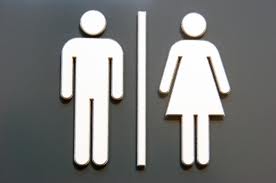More writers (male and female) of non fiction seem to be using feminine pronouns and possessive pronouns to cover both genders, eg, 'the writer tells herself that her readers...' Until recently, I thought, 'fair enough, the masculine form has had a good run'.
However, the practice has begun to irritate me. Why? (As the only male in our family, I've found it to be safer practice to ask before commenting.)
Do most women object to mankind being used to encompass men and women? Or to God being referred to as He for his male and female flocks? If they do object, fine by me. Not long ago, the masculine form was accepted as generic for men and women; so the wish, now, to indicate both genders seems fair. However, such balance can render sentences longer and uglier: too many 'he or she' and 'himself/herself' constructions. And the journalistic practice of deploying plurals to provide uncontroversial 'they/them/themselves' alternatives isn't always appropriate.
I guess that using the feminine generic for both genders results from the pendulum swinging beyond the centre of its arc, under laws of equilibrium (and justice), after being stuck so far and so long to one side.
I hope it doesn't stick on the opposite side. Inaccuracy or political correctness may render the masculine descriptor for both sexes unacceptable, but is a feminine version any better?
I don't think so. And I part company with those who wish it to become some form of new standard, or simply a matter of writer's choice.
Is there a solution that is both elegant and fair?
Subscribe to:
Post Comments (Atom)


For a long time, I have preferred the plural form. The BBC accepted it in mid 80s, an old hat by now.
ReplyDeleteComing rather late to this PK. I've not noticed a generic use of female pronouns. What I have noticed is, perhaps not unnaturally, female writers tend to refer to writers generally as 'she' and to 'her' readers, while male writers use 'he' and 'his'.
ReplyDeleteAs to the God thing, God is spirit and presumably has no gender in the anatomical sense. However, the infinite God has reached out to created human beings in a chosen manner by being likened to a loving father - an image we finite creatures are able to understand, where we could never hope to understand fully an infinite God. This is his choice of analogy. His Word, the Bible has a lot to say about human fulfilment in our joyously different and equal roles depending on our gender. To blend the roles into a bland mixture that is neither one or t'other is to lose a great part of our individually created distinctive and harmonious nature - to diminish the potential of both sexes, which acting together in a committed relationship, each fulfilling their distinct role, can be much greater that the two acting alone. In the light of this, as since God chose to describe himself as a father figure, I'm certainly not going to stand up and tell him he got it wrong, he should really have described himself as a mother figure. If God calls himself a 'he', who are we, his created beings, to dare to call him 'she'?
(And to any who chose to counter this by saying that it was the male writers of the scripture who chose to use male pronouns for God, I simply say, if you do not accept the Bible as the true word of God then it matters not a whit whether you call 'your' God 'he', 'she' or 'it'. If he's not the God revealed to us in the Bible, he is not God at all.)
Tony (from WordCloud)
Tony,
ReplyDeleteThanks for your comment. I suppose my point is that 'all male' and 'all female' references are unsatisfactory. As usual, I have no solution!
As for the God reference, I've learned from long experience how difficult, even impossible, it is for those who have religious faith and those who don't to debate/argue the 'God' issue. Your comment in parentheses rather makes my point as it closes off further discussion if you don't believe. Yet, those who don't believe in God still need to refer to him/her and my question was simply about the 'how?'.
A very interesting question and debate. The (imperfect) solution I use in my own writing is to switch off. In one essay/article I'll use he/him, and in the next essay/article I write I'll use she/her (although I am consistent in my usage throughout each individual article or essay.) It's not a perfect solution, but it feels more egalitarian than always using one gender or another.
ReplyDeleteI think we should delete he/she in favour of "whe". It's an inclusive-sounding thing, as per "we", and a celebratory sort of noise ("wheee!"). See, you can come to me, any time.
ReplyDelete